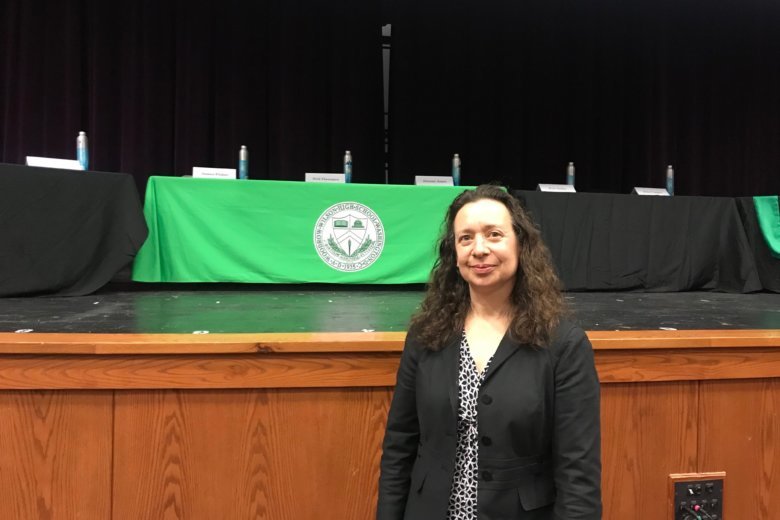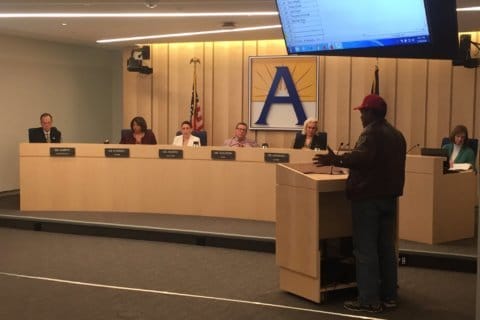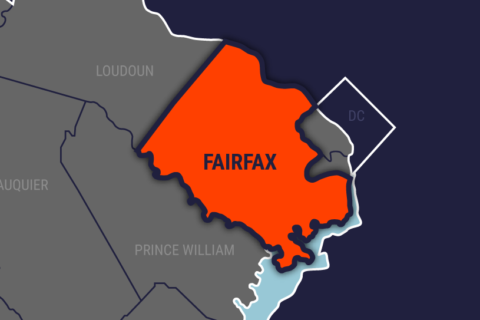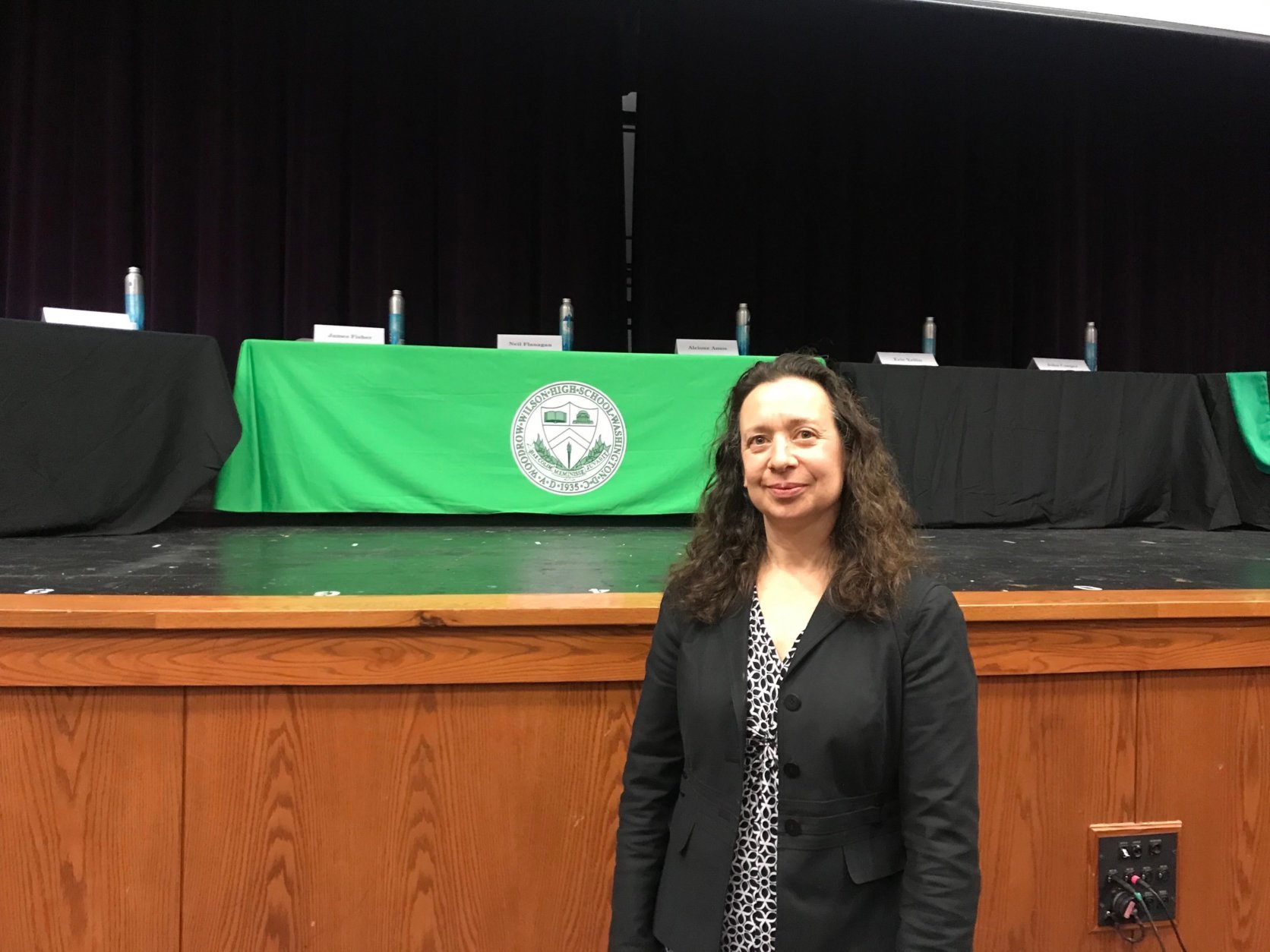
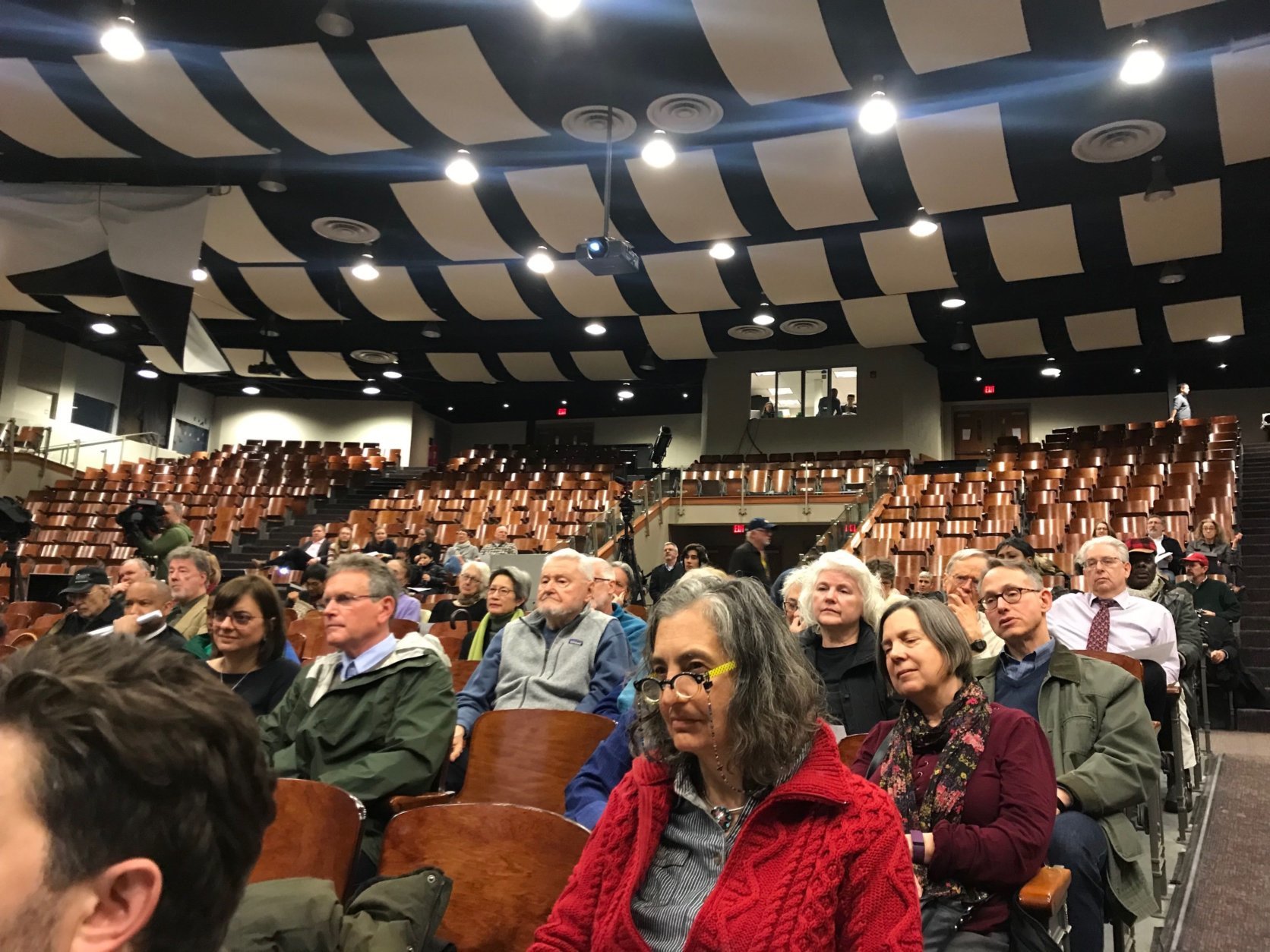
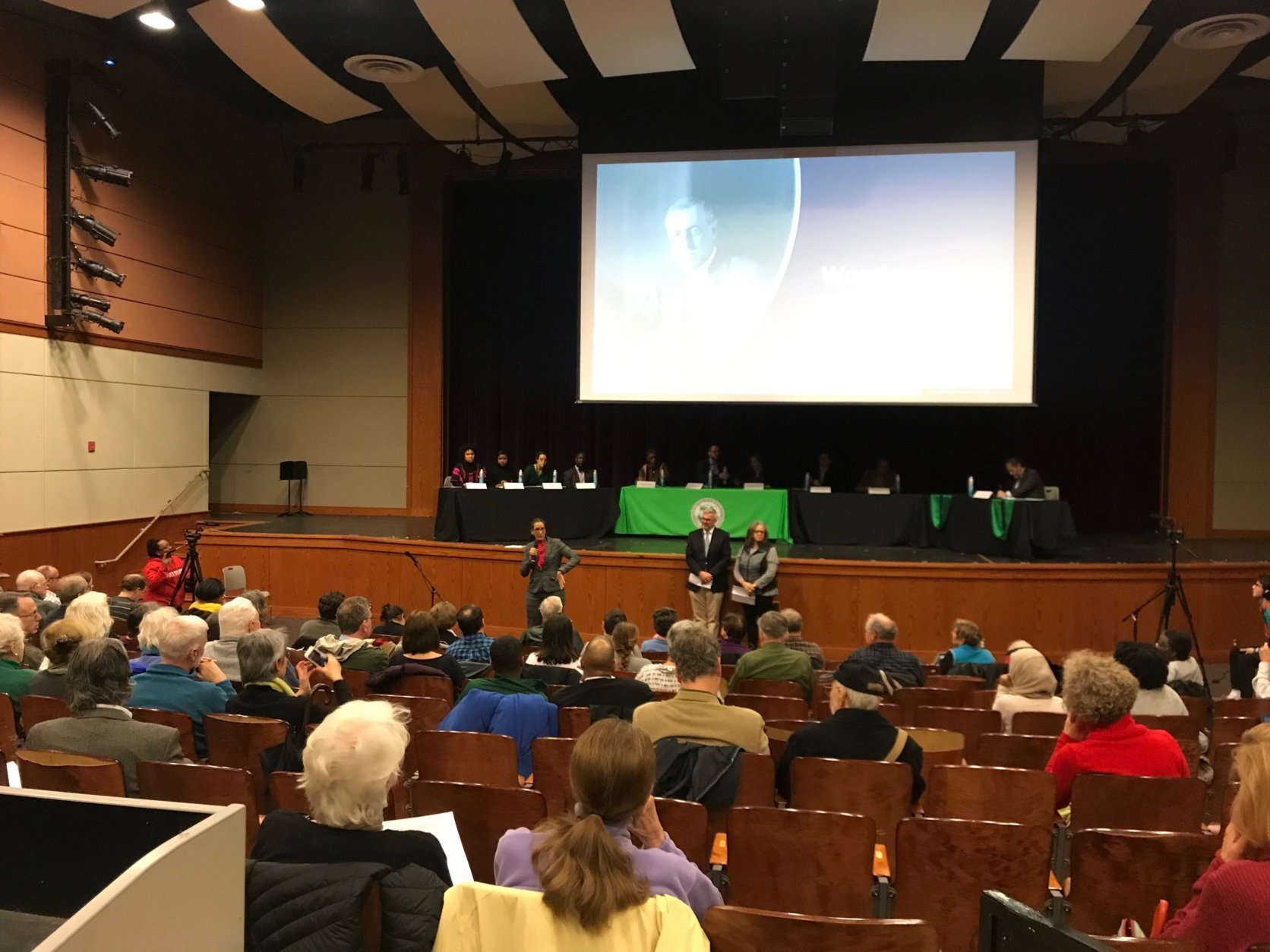
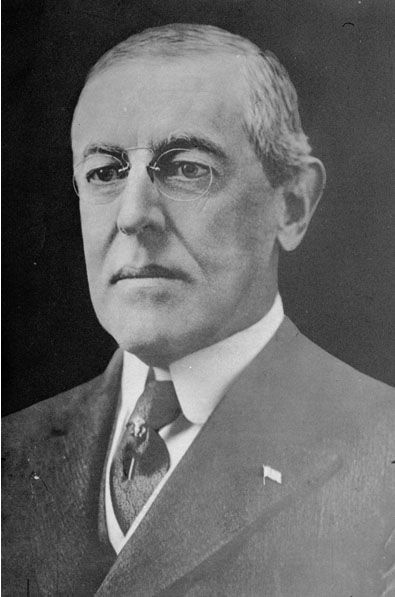
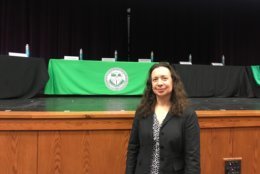
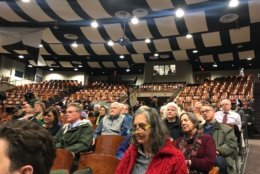
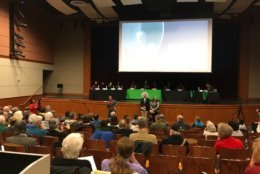
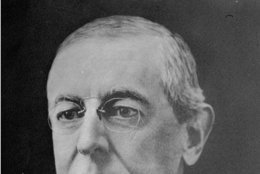
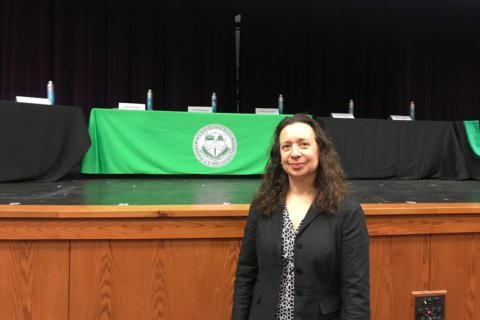
WASHINGTON — America’s 28th president led the nation to victory in World War I. He appears on many historians’ lists of the country’s best presidents, but a conversation is underway about taking that name off one of Washington’s most diverse high schools — Woodrow Wilson High in Northwest D.C.
“Woodrow Wilson was a very committed segregationist, and we would certainly like to see the name changed to somebody or something that is more in line with the school’s ideals and the city’s values,” said Judith Ingram, parent of a 10th-grader and member of the ad hoc group The D.C. History and Justice Collective.
Parents, students, Wilson graduates, historians and neighbors gathered in the school auditorium Tuesday night for a community forum devoted to the matter of considering the school’s name.
Are there doubts that President Wilson’s policies were racist?
“The (Wilson) administration is known, in terms of race relations, for segregating the federal government. And that’s true,” said Eric Yellin, Associated Professor of History and American Studies at University of Richmond and author of “Racism in the Nation’s Service: Government Workers and the Color Line in Woodrow Wilson’s America.”
“(Federal) offices for the first time were segregated. Sometimes people will say resegregated, but that’s not correct. Federal offices were never segregated until the Wilson administration.”
Yellin said African-American careers in the federal government were ruined because of Wilson’s policies of segregation in D.C.’s federal buildings.
“Every other year you see a promotion, people moving up in pay grade or responsibility — all of that comes to a halt in 1913-1914, and is lost for 3 generations,” Yellin said.
Do historians agree over the racial legacy of Wilson — born in Virginia, raised in Georgia, a former governor of New Jersey and president of Princeton University?
“A friend of mine once said he thought the two things that kept Wilson from transcending greatness were race and civil liberties. The record on race is not good,” said John Milton Cooper, professor emeritus at the University of Wisconsin-Madison, author of “Woodrow Wilson, A Biography,” and a 1957 graduate of D.C.’s Woodrow Wilson High.
Cooper praises Wilson on foreign policy. “He won our war, our first big, overseas war we ever fought, he won that war,” Cooper said, crediting Wilson with saving hundreds of thousands of lives by bringing World War I to an abrupt close.
On the matter of race, Wilson provided revolutionary filmmaker D.W. Griffith the illustrious venue of the White House to screen his ambitious silent classic “The Birth of A Nation.” The racist movie demonized African-Americans and lionized the Ku Klux Klan, sparking a revival for the white supremacist group that had developed in the years following the Civil War.
Not everyone is in favor of changing the name of the school.
“I would be OK if the name stayed. We can’t erase history,” said Kadesha Bonds, who teaches Mass Media and Communications at the high school.
“It is what it. They were who they are … Is (changing the name) going to help us close the achievement gap? Our biggest issue we have inside the school system is achievement gap.”
The conversation over the name of Wilson High School is well underway, placing in sharp relief the racial policies of the nation’s 28th president.
“I’ve heard some very controversial things about President Wilson, which almost makes me think they should change the name of the school,” said Zachary Kaplan, an 11th-grader there.
“I don’t think that the name currently represents what we are as a school now,” added Charlie Nichols, also an 11th-grader.

